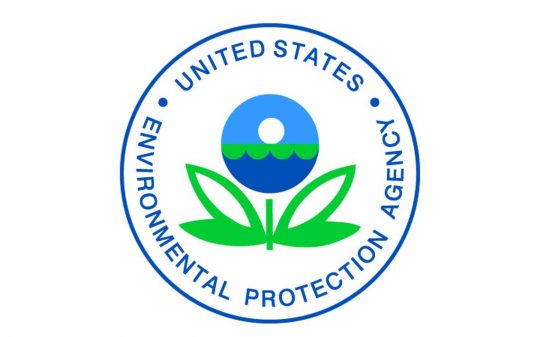Our friends the EPA. The Federal, State and local regulations are always in effect and more rules continue. While usually good for mankind, it is sometimes hard to figure their rationale. No bad news from Washington lately because this current administration is for less regulations. Still, the states have the option to make the rules even more difficult. My subject today is concerning the so-called 10 mandated (soon) most dangerous chemicals that should be eliminated. Tons written to date on the subject, but comments from a drycleaner and an environmentalist are just ahead. Please send me your comments.
A drycleaner’s comments, anonymous, but published:
“I strongly support the PCE ban. I am a third-generation dry cleaner. We operate 10 dry cleaning machines. We used perc for decades. In 2005 a landlord made us switch to alternative solvents. Since the handwriting was on the wall, we switched the entire company over several years. Personally, I don’t believe perc is a carcinogen. I used it along with hundreds of others over the years and like the studies show, drycleaning workers do not show a higher incidence of cancers than workers in other trades. While you may hear that hydrocarbon isn’t as good a cleaner as perc, we believe it’s better for your clothes and puts out a better product. It’s an oily solvent and tends to brighten colors and soften wools where perc used to remove everything including some layer of dye.
In addition, our society demands it. Perc got a bad rap, but it did and that won’t change. You can’t unring the bell. Lastly, introduction of this ban will force thousands of Mom and Pop dry cleaners to get educated on their trade. Too often Mom and Pops don’t know what they clean with and aren’t good ambassadors for the industry. But by switching over to alternative solvents we can ensure no new sites to clean up, better quality product provided our customers, and removal of the black eye the dry cleaning industry has had in the minds of landlords nationwide.”
Comments of Center For Environmental Health in regards to 10 Worst Chemicals:
The Center for Environmental Health is dedicated to protecting children, families and communities from hazardous toxins. It is with this goal in mind that we are excited to work with the EPA and other coalitions groups, in ensuring that even the most vulnerable among us are protected from known and potential hazards. One of our main hazards of concern is endocrine disrupting chemicals, shortly (EDC’s), which are known to have a long lasting and damaging effect on the human body.
Our over arching purpose, not only in bringing these comments to you, but in working with others committed to environmental health and environmental justice, is to provide support in the form of knowledge and advocacy on behalf of vulnerable populations, which the EPA also seeks to, and is entrusted to protect Safer Chemicals, Healthy Families.
Tetrachloroethylene (Perchloroethylene) is a manufactured chemical that is widely used for dry cleaning of fabrics and for metal degreasing.
It is also used to make other chemicals and is used in some consumer products.
As stated in the EPA brief summary of chemicals, Perchloroethylene is used as or in, feed stock for manufacturing chlorinated chemicals, degreaser, cleaner, dry cleaning and textile processing, carpet and spot cleaning, industrial catalyst regeneration, lubricants, wood furniture manufacturing, sealants and adhesives, metal, stone polishes and coatings, paints, inks, ink removal products, metal surface preparation and cleaning, plastic and rubber manufacturing, laboratory applications, automotive manufacturing and maintenance, mold cleaners, releases, protectants and other various industrial, commercial and consumer uses. (EPA, 2017)
Although we see a long list of foreseeable uses listed in the preliminary use documents, we know that there are many other common uses that have not been listed in this document.
Those undisclosed uses may pose the highest threat and hazard to our vulnerable populations. As stated in the February 14, 2017 EPA public comment meeting by one of our colleagues in the Safer Chemicals Healthy Families coalition Eve Gardner of Earthjustice, “these steps are not enough for EPA to understand the full range of circumstances under which these chemicals are placing human health and the environment at risk. We urge EPA to aggressively and creatively seek out information that is not in the agency’s own databases and that is not known by the lobbyists, lawyers and others who attend full day public meetings in Washington, about how these chemicals are manufactured, processed, distributed, used and disposed of in the real world. they cannot adequately protect themselves from. Many of the TSCA regulated chemicals are known endocrine disruptors and carcinogens, causing painful illness, decreased value of life, and potential death. Knowing this, we expect the EPA to act in a manner that prioritizes protecting these individuals.
We understand that the first 10 chemicals pose a unique challenge in that they do not need to follow the protocol of the mandatory prioritization process, which can lead to lack of sufficient data which may create rules that are not covering the widest range necessary to protect the largest population. We urge the EPA to look for other uses of these chemicals that have not been presented or readily available to the public but are known to be used and can be hazardous.
With that knowledge, the EPA should do everything in their power to prevent the harm from reaching our vulnerable populations.
In closing, we ask that the EPA use all efforts to ensure protection of the people that cannot protect themselves because they don’t have the information afforded to the EPA, because they are unwittingly exposed by nearby facilities, transportation infrastructure, or in their workplaces or products they use regularly, or because they are children or future generations at vulnerable points of development without the power to act on their own. The major tenet of establishment of the EPA was for the protection of the environment and all people who inhabit it.
All of the subsequent laws and amendments that have come out from these agencies establishment were created for the unifying purpose of protecting people.
Well folks, that is a response to EPA “10 Chemicals” that must be reviewed, beginning in 2017. The paraphrasing of the letter after the drycleaners’ comments sums up the belief of dozens of EPA related entities that believe drycleaners are reckless and in sort, don’t think that any chemical is safe for our environment. I can’t agree. The study and fright of chemicals that have been used for a hundred years or so, is prejudice and blasted out to the public in a reckless way that puts everyone except the most extreme conservatism in doubt.
I’m headin’ to the wagon now, these boots are killin’ me!

